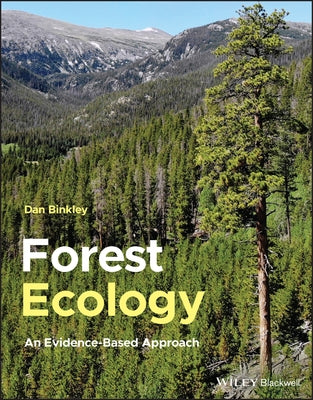Description
Forest Ecology
An Evidence-Based Approach
Forest ecology is the science that deals with everything in forests, including plants and animals (and their interactions), the features of the environment that affect plants and animals, and the interactions of humans and forests. All of these components of forests interact across scales of space and time. Some interactions are constrained, deterministic, and predictable; but most are indeterminant, contingent, and only broadly predictable.
Forest Ecology: An Evidence-Based Approach examines the features common to all forests, and those unique cases that illustrate the importance of site-specific factors in determining the structure, function, and future of a forest. The author emphasizes the role of evidence in forest ecology, because appealing, simple stories often lead to misunderstandings about how forests work. A reliance on evidence is central to distinguishing between appealing stories and stories that actually fit real forests.
The evidence-based approach emphasizes the importance of real-world, observable science in forests. Classical approaches to ecology in the twentieth century often over-emphasized appealing concepts that were not sufficiently based on real forests. The vast amount of information now available on forests allows a more complete coverage of forest ecology that relies on a strong, empirical foundation.
Forest Ecology: An Evidence-Based Approach is the ideal companion text for the teaching of upper-level undergraduate and graduate courses in forest ecology.
Author: Dan Binkley
Publisher: Wiley-Blackwell
Published: 10/04/2021
Pages: 288
Binding Type: Paperback
Weight: 1.80lbs
Size: 10.80h x 8.50w x 0.70d
ISBN13: 9781119703204
ISBN10: 1119703204
BISAC Categories:
- Nature | Plants | Trees
About the Author
Dan Binkley is Adjunct Professor in the School of Forestry at Northern Arizona University, USA.

